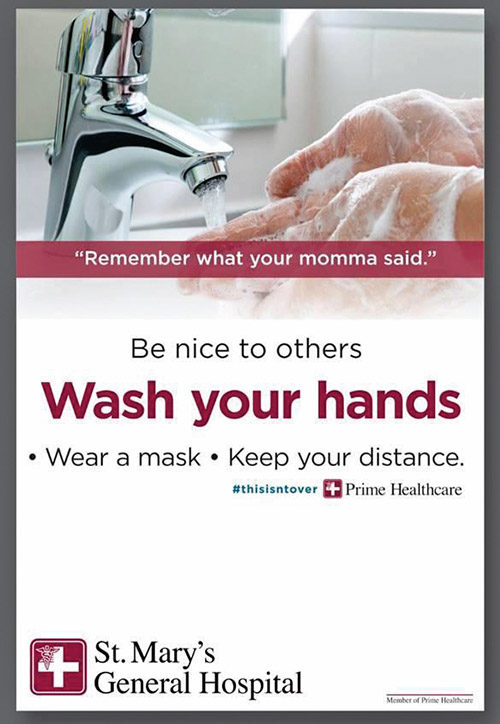
(Courtesy of St. Mary’s General Hospital) It used to be that all we had to worry about when visiting a patient in a hospital on Shabbos was whether they had electronic doors that would be activated when you came near. Now with COVID-19 and the safety precautions, St. Mary’s General Hospital and other local hospitals have new technology—temperature checking with a thermal scanner pointed at your head that gives an instant reading.
The past two weeks, the Torah Tavlin1 discussed this issue and offered some excellent opinions on how to look at this problem. While we will not discuss all the halachic opinions, it is important to know some guidelines, and as always—ask your LOR (Local Orthodox Rabbi)!
You are not benefitting from this scanner—you do nothing to activate it and you did not ask the guard to take your temperature. The guard points the scanner at your head and gets your temperature as part of hospital policy. Many poskim2 hold that electrical activities where there is no heat-producing3 light is only a rabbinic prohibition. The lighting up of numbers is at the most a non-lasting writing, which is also not a Torah prohibition. You are not asking a gentile to take your temperature4; rather, you are doing a mitzvah that requires this process.
As is well known, you can activate lights, cameras and machines by your simply moving, which you were innocently doing. Your gentile neighbors living on both sides of you can set up circuits that can make you turn on lights every time you enter or leave your house. The first consideration is whether such an action (walking by), which is being done without any intent to activate, is deemed in halacha as your intention5—or not. Obviously some poskim6 rule that it is not your action and others disagree. Even if this logic does not permit it completely, and it is still rabbinically prohibited, this alone makes the entire question more lenient.
Some poskim7 disagree with the above and say we cannot completely detach what one activates from the person. However, they suggest other reasons that justify a leniency that makes the action permissible:
1) Even if it is called your action, it is still without intent (the visitor has no interest in knowing his temperature), just an inevitable outcome that does not benefit him at all.
2) Since walking is not the normal way of creating numeric readouts, some poskim consider it like doing a melacha in an unusual manner which is only m’d’rabanan. One could argue that since this has become an accepted mechanical way of doing it, it becomes a normal way, yet they are still lenient.8
3) Even though the result of his walking through is immediate, some poskim consider it an indirect cause.9
4) The result of the scan is not lasting, which makes a melacha become M’Drabanan. Even if it is stored away in computer language data, that is not seen by the eye.
5) Heat-free electrical activity, according to some poskim, is not a Torah restriction. For example, LED lightbulbs do not generate heat, which means turning on an LED light is not a violation of Shabbos.3
As with most everything that we do, there will be opinions in favor and against temperature reading on Shabbos. As stated above, if in doubt ask your LOR (Local Orthodox Rabbi)!
St. Mary’s General Hospital—nationally recognized, locally preferred—among the top hospitals in America for health, quality and patient safety! St. Mary’s General is a proud member of Prime Healthcare, which has more Patient Safety Excellence Award recipients for five consecutive years (2016-2020) than any other health system in the country.
To learn more about how St. Mary’s General Hospital is providing safe care during COVID-19 and always, visit https://www.smh-nj.com/ or Facebook at https://www.facebook.com/StMarysGeneral. For questions, please contact George Matyjewicz, PhD, community liaison at [email protected].
1 https://www.torahtavlin.org/torah-tavlin-weekly
2 Legal scholars who determine the position of Jewish religious laws derived from the written and oral Torah.
3 Rabbi Yaakov Glasser, YIPC “Alexa …. Are you Muktza? The Convergence of Halacha and Technology”
4 Amirah L’Akum
5 “Meleches Machsheves”
6 R’ Shmuel Wozner, zt”l, in three places rules that it is not considered your action. The Minchas Asher also understands it that way.
7 Among them Rav Elyashiv, zt”l, and R’ S. Z. Auerbach, zt”l
8 Some find a precedent in Eliyahu Raba. See also Orchos Shabbos.
9 See Shut Shaarei Tzion (R’ Shmuel Rabinowitz, shlit’a) for a broad discussion of this and a listing of poskim who are lenient.










